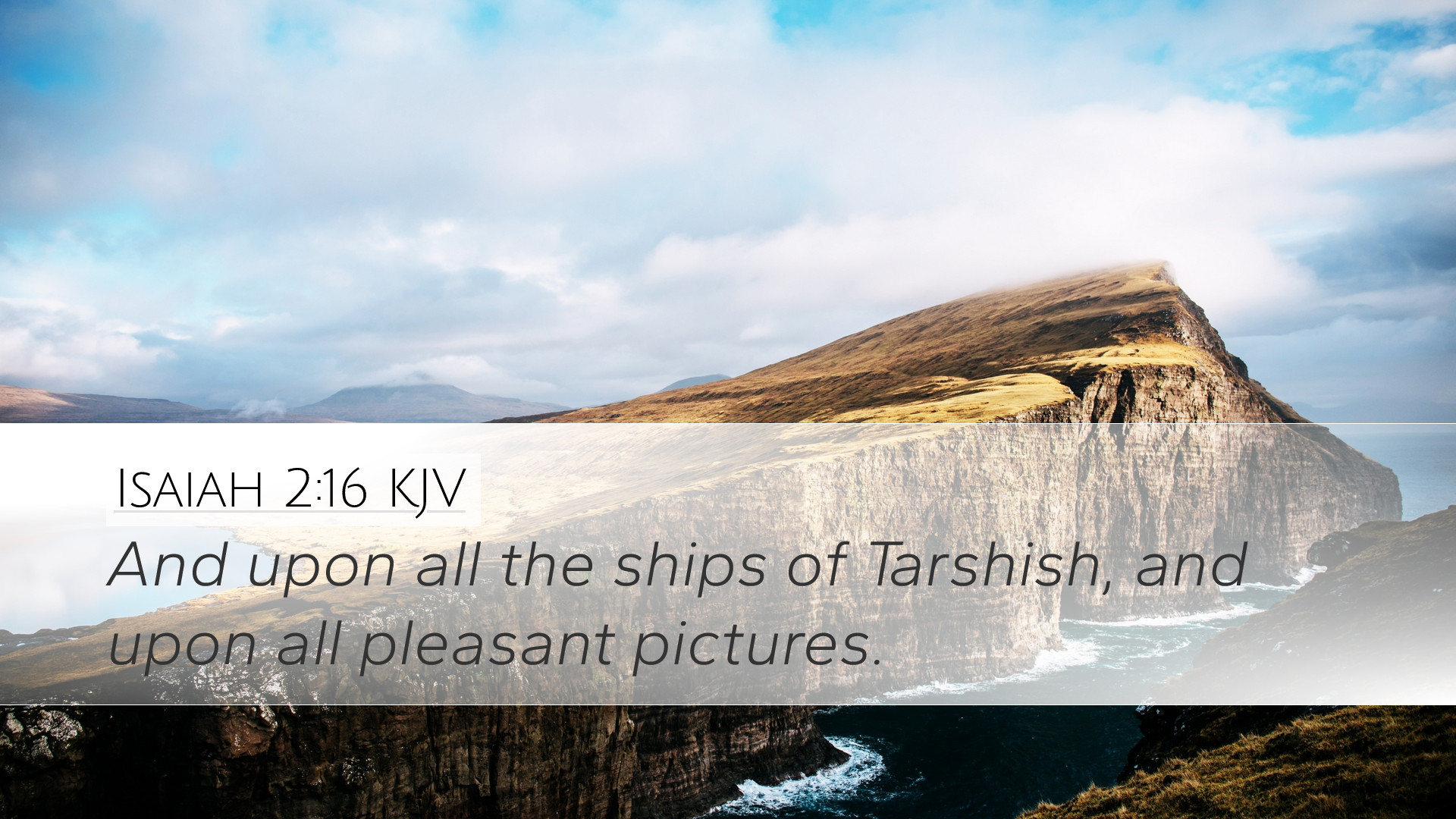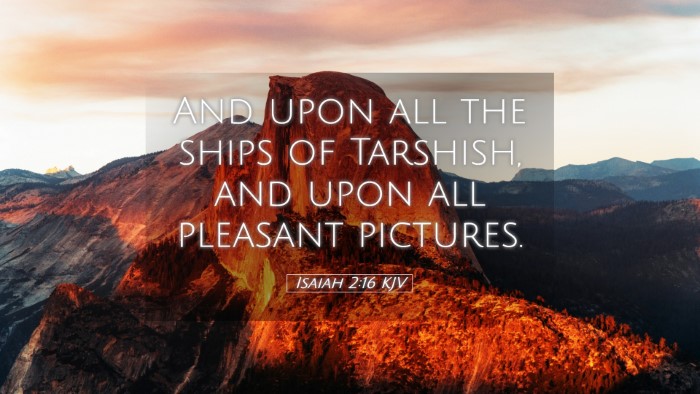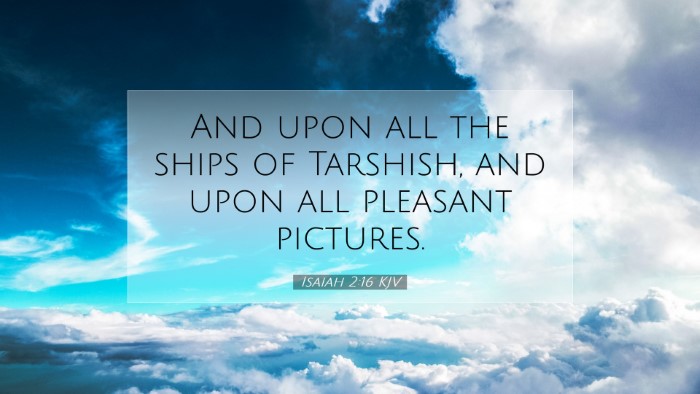Commentary on Isaiah 2:16
Isaiah 2:16 states:
"And upon all the ships of Tarshish, and upon all pleasant pictures."
Introduction
This verse is part of a regal prophecy that elucidates God's judgment upon nations and their prideful reliance on their own treasures and power. The imagery of Tarshish and pleasant pictures symbolizes the grandeur of worldly desires contrasted against divine scrutiny.
Contextual Analysis
To understand this verse thoroughly, one must consider the broader context of Isaiah 2, where the prophet warns of a future day of the Lord marked by judgment against human arrogance and idolatry. Tarshish, known for its wealth and trading ships, represents not only a geographical location but also the broader pursuit of material wealth and security.
Connections to Previous Verses
The surrounding verses create a somber crescendo, framing a clear dichotomy between the exaltation of the Lord and the downfall of human pride:
- Verses 10-11: These verses call for the proud to hide in caves, indicating that human pride will be brought low before the majesty of God.
- Verse 12: This asserts that the day of the Lord will be upon all that is proud and lofty, a theme prevalent throughout scripture.
Interpretations by Commentators
Matthew Henry's Commentary
Matthew Henry emphasizes the comprehensive nature of God's judgment in this verse. He posits that the ships of Tarshish exemplify the pride of human achievements and the peril of relying on worldly commerce. Henry explains:
"The craft and gains of maritime activities are under the divine authority; they are neither eternal nor secure."
This highlights the transience of material wealth and the call for believers to fix their eyes on eternal riches.
Albert Barnes' Notes
Albert Barnes offers a poignant observation regarding "pleasant pictures," interpreting them as "those things that attract the eye and excite the imagination." He argues that these images represent the allure of luxury and abundance prevalent in society:
"The day is coming when these very items of pride and pleasure will elicit judgment."
Barnes stresses the inevitability of divine scrutiny upon even the most attractive symbols of human success.
Adam Clarke's Commentary
Adam Clarke interprets this verse with a broader cultural lens, connecting it to idolatry and the corruption that follows the neglect of divine worship:
"The reference to ships of Tarshish signals not just wealth, but the idolatries supported by such wealth."
For Clarke, the verse serves as a warning to those who seek worth in earthly pursuits rather than in a relationship with God.
Theological Implications
Isaiah 2:16 serves as a stark reminder for both individuals and nations regarding the fleeting nature of worldly possessions and achievements. The day of the Lord will reveal the futility of placing trust in wealth, beauty, and power:
- Divine Sovereignty: It reaffirms God's ultimate authority over human enterprise and the futility of prideful endeavors.
- Human Dependence: It challenges believers to re-evaluate their sources of security and success, endorsing a posture of humility and reliance on God.
Practical Applications
For pastors and students of Scripture, this verse can lead to practical applications in the following areas:
- Stewardship: Reflecting on how material possessions are viewed and managed within the community of believers.
- Worship: Examining personal and communal worship practices to ensure they prioritize God over worldly distractions.
- Mission: Recognizing the importance of responsibility to address global issues tied to wealth disparity, influenced by the commercial spirit symbolized by Tarshish.
Conclusion
Isaiah 2:16 invites us to reflect on our relationship with material things, provoking a heartfelt response to turn away from idolatrous affections towards a deeper reliance on the Lord. Let this verse resonate within our hearts and communities as we await the glorious revelation of God's kingdom, where no earthly treasure can prevail.


